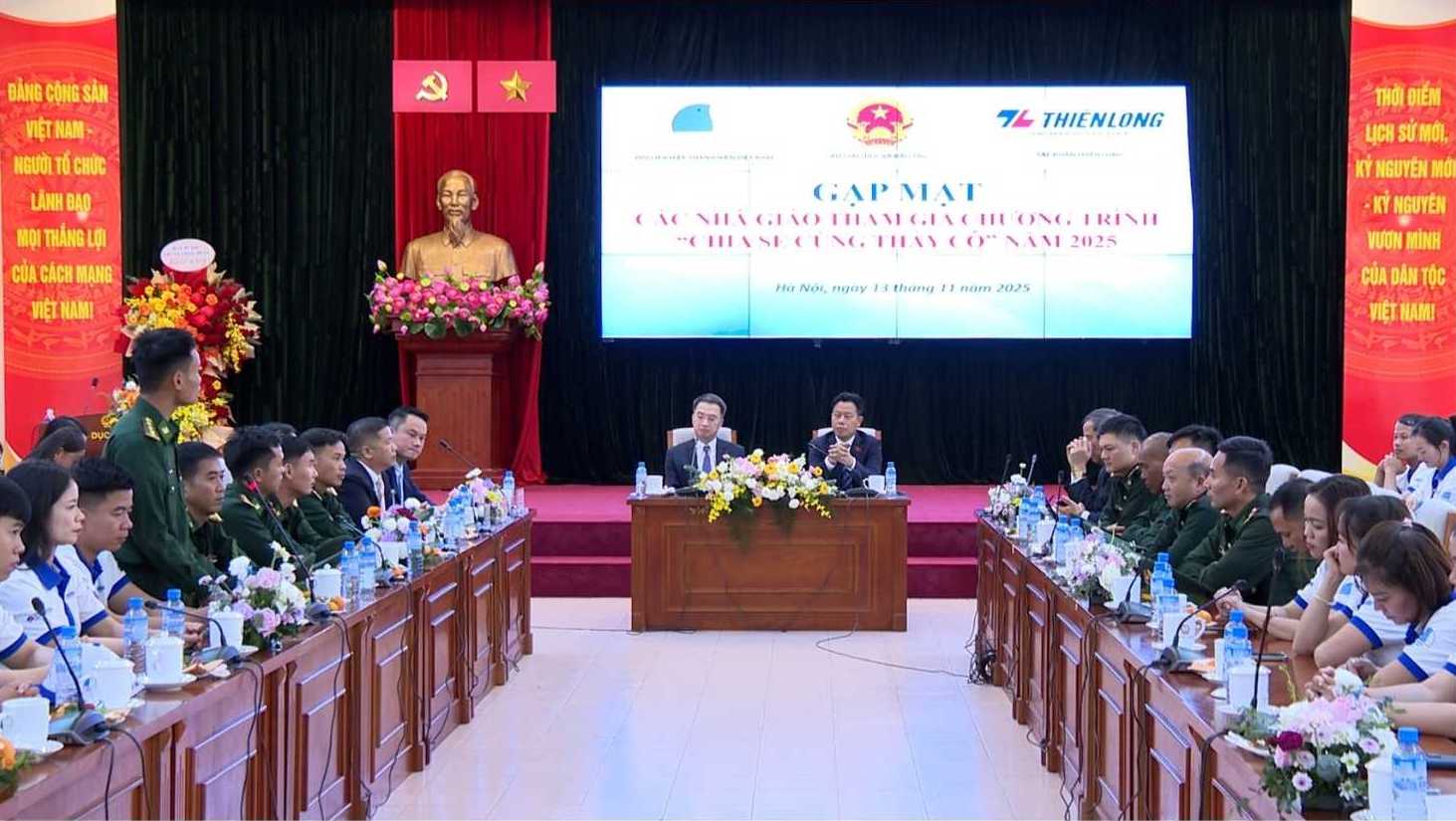On the afternoon of November 13, the Central Committee of the Vietnam Youth Union in coordination with the Ministry of Education and Training and Thien Long Group organized a meeting and honored 80 outstanding teachers participating in the "Sharing with Teachers 2025" Program.
Sharing at the program, Ms. Tran Thi Thao - a teacher at Dao San Primary Boarding School for Ethnic Minorities (Lai Chau province) said that for teachers in mountainous areas, the biggest concern is still the conditions and facilities.

"Students here still lack many facilities, and their daily meals are very simple. To improve the conditions for the children, teachers must encourage the villagers to contribute vegetables, tubers, and self-re Propagated foods at home to provide support" - Ms. Thao expressed.
Ms. Thao added that many students are still living in temporary corrugated iron houses, built with the cooperation of teachers and benefactors. Every time it rains, the water leaks, making the children's sleeping places wet.
As for the teaching staff, there are no housing areas for teachers, so most teachers have to rent accommodation outside to maintain teaching work.

Sharing the same concern, Ms. Giang Thi Tuyen - a teacher at Phu Lung Primary School (Bach Dich Commune, Tuyen Quang Province) - said that the school she works for is located in a border area, a remote area - where people's lives are still difficult. Currently, students no longer receive boarding benefits, have to take care of their own books, learning equipment and medical examination and treatment.
" 100% of the school's students are children of ethnic minorities, most of whom are in very difficult circumstances. Many students bring rice to class with only a bowl of white rice, some even only eat men or a little vegetable soup" - Ms. Tuyen shared.
As someone who has been in the profession for more than 20 years, she expressed her hope that students in the highlands, not only at Phu Lung Primary School, will soon have a boarding school and better learning conditions to go to class with peace of mind, continue to dream of learning.

In response to the concerns of teachers in mountainous areas, Deputy Minister of Education and Training Le Quan affirmed that the Party and State always pay special attention to education in ethnic minority areas. In addition to programs to build new rural areas and sustainably reduce poverty, many education and social security policies have been implemented.
Recently, the Ministry of Education and Training chaired an important event, in which the Prime Minister launched the implementation of General Secretary To Lam's direction on building boarding schools in border communes.
It is expected that this year, 100 schools will start construction; in the next two years, 148 more schools will be completed, contributing to narrowing the regional gap, creating fair learning opportunities for all students.
The Deputy Minister said that in recent times, the education sector and the whole society have been making efforts to improve policies, teaching and learning conditions, living conditions, as well as access to digital technology for teachers in disadvantaged areas. But above all, it is their love for the profession and dedication that are the factors that keep the fire of knowledge in border areas and islands.
According to the Deputy Minister, among the 80 outstanding teachers honored this year, 36 are ethnic minority teachers, representing 18 ethnic groups. All teachers are the lights that light up faith, the desire to learn and are vivid evidence of the spirit of love for the profession, dedication and humanity of teachers.
However, in reality, students in ethnic minority areas still face many challenges. The rate of dropping out of school after grade 9 is still high; many students leave their hometown to work in industrial parks, while career opportunities in the locality are still limited.
Therefore, the Ministry of Education and Training aims to focus on developing the system of boarding and semi-boarding schools at the secondary and high school levels in the coming time, while promoting traffic flow, career guidance, and vocational training so that students have both learning opportunities and sustainable jobs on site.











